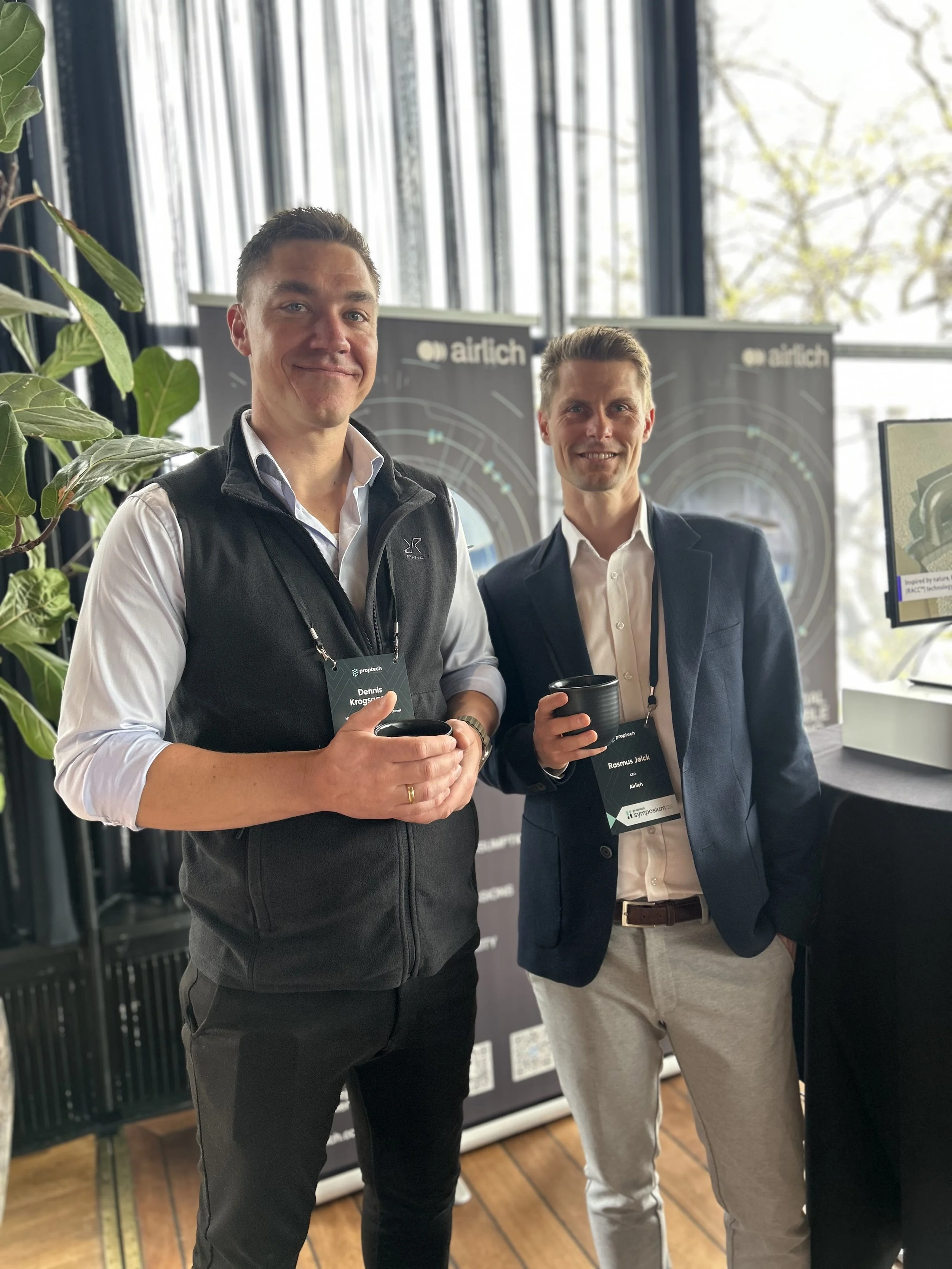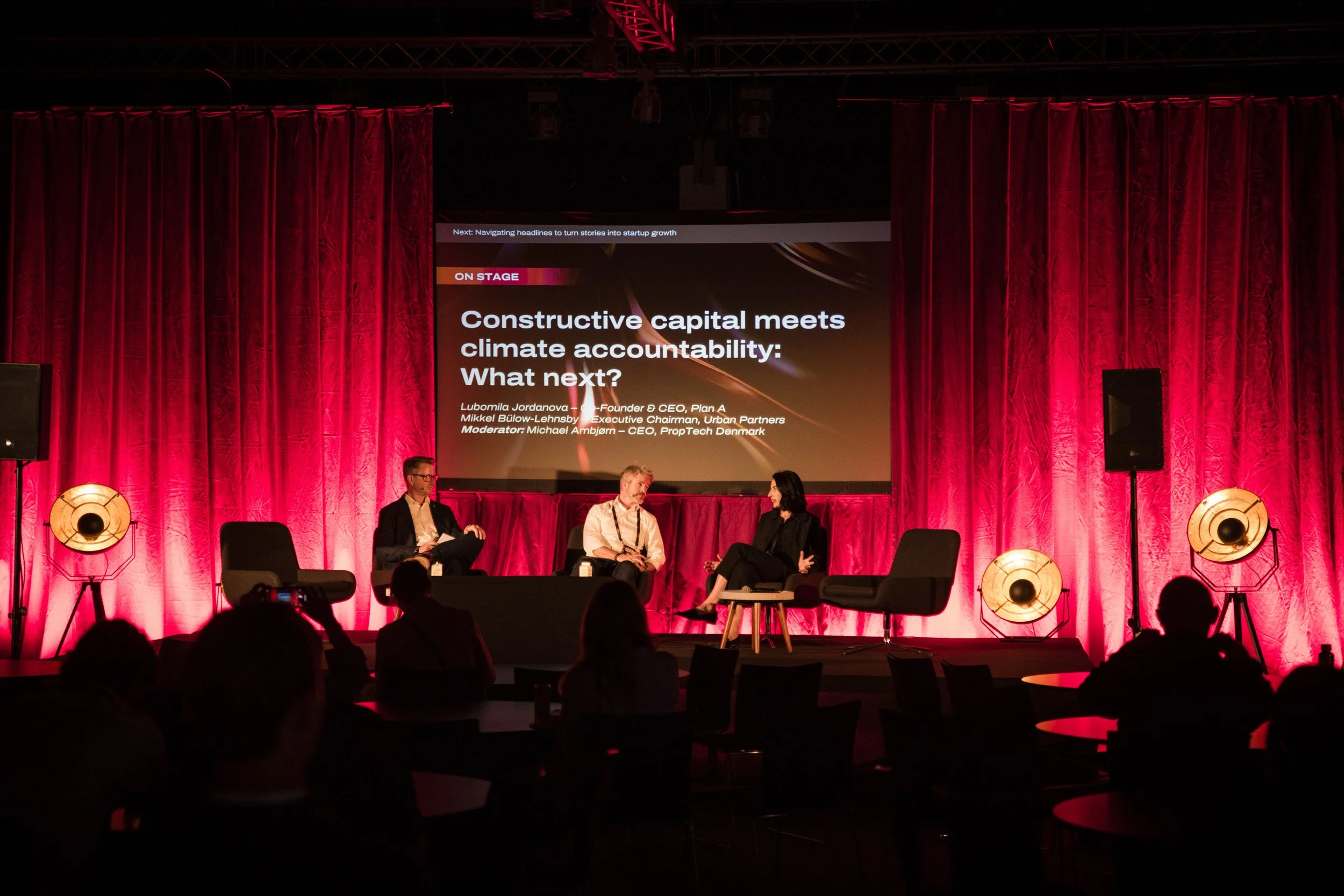Q&A: Ditte Lysgaard Vind
“Proptech isn’t just a digital layer – it’s the infrastructure for resilient cities.”
In this Q&A, Ditte Lysgaard Vind, Chief Innovation & Science Officer at BLOXHUB and co-author of The Copenhagen Way, shares her perspective on proptech as a driver of systemic change. Because the future of the built environment depends not only on technology – but on our ability to connect, collaborate, and adapt.
In your words, what role does proptech play in the real estate industry in 2025?
In The Copenhagen Way (linked below), we describe how cities can act as engines of resilience and competitiveness by aligning governance, investment, and innovation across systems like housing, energy, mobility, and water.
Proptech belongs in that same logic. It is not a parallel track of digitalisation but part of the infrastructure that enables adaptive capacity in the built and urban environment.
We are starting to see a higher degree of implementation of proptech solutions, which is encouraging both because of the resource efficiency gains they individually deliver and because they build innovative capacity across the industry.
They serve as tangible examples that taking the time to learn new ways of doing benefits users, society, and business alike. In that sense, proptech is not only about technology but about strengthening the sector’s ability to adapt, collaborate, and act on complexity.
What are emerging areas of commercial proptech that you're excited about in the proptech space?
There are many, but two I would highlight.
First, we already have strong solutions helping building owners deliver on energy savings. But there is still much potential to unlock if we begin to see buildings as part of the energy system rather than as stand-alone consumers. The European grid needs storage, and the built environment holds that capacity if we design and manage it as connected infrastructure.
Second, digital building logbooks. The European Commission has just confirmed their development in its upcoming work programme, which is an important step. Logbooks will be key to connecting circularity, affordability, and innovation. Reliable data across the value chain can reduce cost and resource use while increasing transparency and trust.
Both examples point to the same shift from technology as a separate layer to digital infrastructure as a shared foundation for a more resilient and efficient built environment.
How do you see the real estate industry evolving over the next 5 to 10 years?
The sector will change fundamentally.
Cities face intertwined challenges: affordability, decarbonisation, and competitiveness and none can be solved by one actor alone. The next phase depends on co-responsibility across public, private, and civic domains, aligning incentives, governance, and investment. That is how we move from isolated projects to systems that deliver affordability, liveability, and climate resilience at scale.
And sitting here in San Francisco for the World Economic Forum’s Urban Transformation Summit, while answering these questions, it’s impossible not to reflect on AI. And yes, AI will play a large role. But whether it strengthens or undermines liveability will depend on how we structure responsibility. Technology will not replace the need for intentionality, trust, and collaboration. It will make them more important.
What would you wish that you knew prior to getting to this point in your career?
Probably how long the needed change takes.
But I’m also kind of glad I didn’t. You have to stay with it. Transformation depends on stubborn optimism & the patience to keep going when results take time.
We love inspiration! Is there a specific person, book, article, podcast – or something else – which has special meaning to you?
Oh, where to start…! Bent Flyvbjerg’s book, Ed Conway, Vaclav Smil and not least Benjamin Labatut. I still prefer the first When We Cease to Understand the World but the second The Maniac is also really good – and I imagine very relevant for the readers here.
Thank you so much for sharing some great inspiration (I second your recommendation of When we Cease…!) – including insights from your work and the new publication, which should also go straight on everyone’s inspiration list.
About Ditte Lysgaard Vind
Ditte Lysgaard Vind is Chief Innovation & Science Officer at BLOXHUB, where she leads international partnerships, professional development tracks and the Science Forum. Formerly founder of The Circular Way and associate partner at Lendager, she is a recognised expert in circular economy, holds multiple board roles and has authored books on design heritage and sustainability.
Further reading
The Copenhagen Way is available for download HERE – or you can grab a copy next time you stop by BLOX.
Benjamin Labatut: When We Cease to Understand the World & The Maniac









